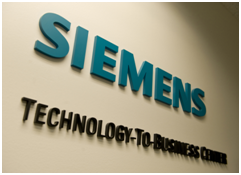
Managing Organisational Change
Introduction
All organisations are changing their focus, expanding or contracting their activities and developing their products and services. Change is an inevitable part of a successful business. Yet many are resistant, even fearful of change. As a manager or leader it is part of your role to identify areas to change, to implement changes necessary and to motivate and engage your staff to work with the change and to make it happen. This course will explain why change is necessary. Show you how to influence change rather than enforce it. It will also give you practical strategies to help others go through the cycle of change to become willing participants of change.
Who is it for?
The course would be suitable for human resources officers, strategy consultants, managers and leaders who have to work through changes and lead teams and individuals to adapt it.
Trainer – Baha Bader
- Director of Human Capital Training – Manchester
- BA Business -HRM, Msc Edu, PGCE
- CMI Certified coach trainer
- Assistant Lecturer, Manchester University
- Expert Examiner – Edexcel exam board – Pearson Education
At the end of the course
After completing this course, trainees will know how to:
- Understand the essentials of managing change by identifying the levels of change, and the importance and benefits of change
- Identify the steps of a change process, set goals, and prevent change failure.
- Understand and recognise individual’s motivators for change and how to use them and motivate employees
- Identify the emotions, responses, and needs experienced during the transition phase.
- Understand the obstacles to change including resistance and negative reactions to change and how to deal with them positively
Course outlines
Day one
- Why organisations need to change
- Change management process
- Change models
- Organisational change frame work
- Making change management more effective
Day two
- Conflicts, crisis, and decision making process
- Emotional process
- Individual / group resistance to change
- Communicating change
- Manager – Leader role
Day three
- Effective ways to promote and sell change
- Rate your organisation adaptability to change
- Planning your organisation change
- Case studies of successful organisational change
Day four:
Visiting the modern scientific exhibition of Siemens Technology and explore their new approach to the change of energy strategy and the new technology era.
Day five:
Visiting BMW group cars plant “Mini Cooper” car factory in Oxford
Training location London – Russell Hotel


